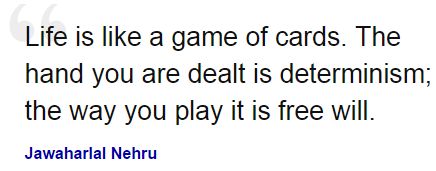 As a technology marketer, I constantly preach that technology must solve a business problem for it to enter the mainstream. I also believe that it’s the technology provider’s job to explicitly convey how their product or service alleviates pain areas.
As a technology marketer, I constantly preach that technology must solve a business problem for it to enter the mainstream. I also believe that it’s the technology provider’s job to explicitly convey how their product or service alleviates pain areas.
In the context of analytics, this would mean that analytics is useful as long as you know what question to ask of the data. As corollary, analytics should focus on delivering actionable insight instead of insight for the sake of insight.
While this is true for data warehousing, the edict misses the very nature of data mining. For the uninitiated, data mining is a sophisticated branch of analytics that crunches data about measured variables to expose hitherto unknown relationships between them. Therefore, by definition, data mining yields insights without being asked any questions. See Difference Between Data Mining & Predictive Analytics for more details.
Users of data mining shouldn’t assume that insights provided by the technology are like solutions seeking problems. Instead of dismissing them outright, they should unearth new opportunities by evaluating their suitability for their business.
The first step in that journey is to appreciate that data mining insights are of the following types:
- Insight is not connected with business
- Insight is relevant to the business in a nebulous manner
- Insight clearly pertains to the business but doesn’t prescribe action.
 Business users can discard insights of the first and second type. However, when it comes to the third category, they’d do well to recognize that relevant insights don’t always come with a readymade course of action.
Business users can discard insights of the first and second type. However, when it comes to the third category, they’d do well to recognize that relevant insights don’t always come with a readymade course of action.
To play footloose with the famous saying “if you torture data enough, it will confess”, it’s necessary to massage insight before it yields triggers for actions.
The extent to which a company can coax action out of insight in turn depends on how it is wired internally. When the same insight is presented to two companies with different DNAs, one company may act on it and the other company may ignore it.
Quite often, the company that’s biased towards action earns rich dividends from the insight whereas the company that waits for someone to deliver actionable insight on a platter loses out.
Let me use the following real-life insight about online payments in India to illustrate my point.
Spurt in failure of payments coincides with implementation of two factor authentication for online payments (Source: Economic Times, http://ow.ly/vQHB3)
(More background on this can be found in my blog post Skating Away With Online Payments.)
When they were told about this finding, banks pushed back with one or more of the following responses:
- We can’t do anything about two factor authentication. It’s an RBI mandate
- We can’t help it if your Internet connection is patchy
- Contact your TELCO if you don’t get the Mobile OTP
- 2FA will make people feel more safe about making online payments
- Security first, convenience next
In short, the banking industry treated the above insight as an insight of the third type and let it languish without taking any action on it.
On the other hand, One97 Communications, then an obscure telecom VAS company, seized the opportunity exposed by this insight and launched PAYTM, a nonbank mobile wallet. PAYTM stores credit / debit card info of its users, thereby obviating the need for users to enter them for each transaction. In this manner, PAYTM reduced payment failures. Consumers lapped it up in massive numbers and One97 has gone on to become a fintech unicorn within a short span of five years since the launch of PAYTM.
Clearly, PAYTM “incited” action from the above insight and became a mobile wallet winner.
Banks, who initially didn’t take any action based on the same insight, then turned fast followers and launched their own mobile wallets. However, PAYTM has already amassed 100 million users and has left banks far behind. As a senior banker admitted recently, the banking industry has lost the “share of voice” in mobile wallets.
This is the problem with waiting for actionable insight: You lose the narrative when agile competitors incite action from the same insight.
While analytics vendors still have to do their bit to package their offerings in a compelling manner, banks and other users of analytics can gain disproportionate advantage by teasing action out of insight.
